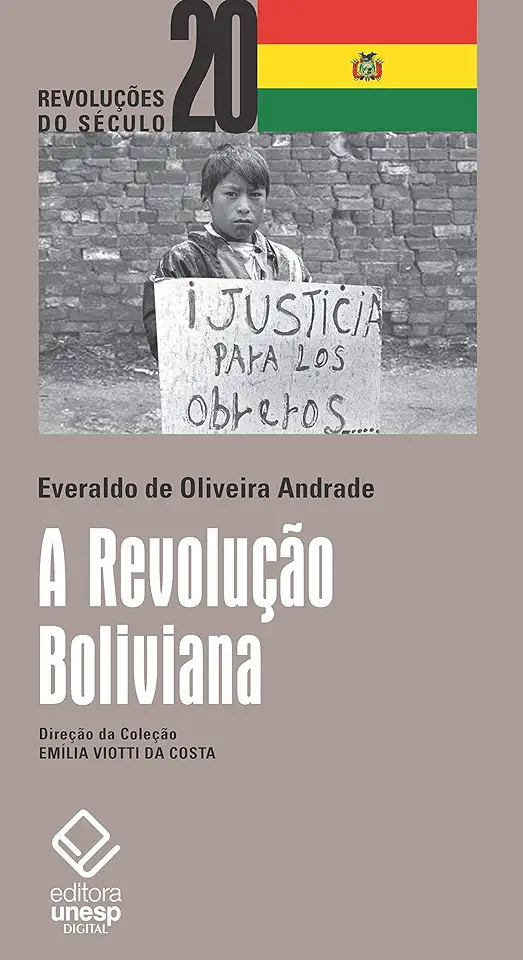
The Bolivian Revolution - Everaldo de Oliveira Andrade
The Bolivian Revolution: A People's History
Introduction
In "The Bolivian Revolution: A People's History," Everaldo de Oliveira Andrade provides a comprehensive and engaging account of the Bolivian Revolution of 1952. This transformative event marked a turning point in the country's history, as the oppressed and marginalized masses rose up against centuries of exploitation and oppression to demand social justice, economic equality, and political self-determination.
The Roots of Revolution
Andrade begins by exploring the historical context that led to the revolution. He vividly portrays the harsh realities faced by the Bolivian people under the oppressive rule of the oligarchy, a small group of wealthy landowners and mine owners who held immense power and wealth while the majority of the population lived in poverty and deprivation. The author highlights the growing discontent and resistance among the indigenous communities, miners, peasants, and urban workers, who were determined to challenge the status quo and build a more just and equitable society.
The Revolutionary Struggle
Andrade then delves into the unfolding events of the revolution, providing a detailed and gripping narrative of the struggles, sacrifices, and triumphs of the Bolivian people. He vividly recreates the mass mobilizations, strikes, and armed uprisings that shook the nation and ultimately led to the overthrow of the oligarchic regime. The author pays tribute to the courage and resilience of the revolutionary leaders, such as Víctor Paz Estenssoro, Juan Lechín Oquendo, and Hernán Siles Zuazo, who played pivotal roles in guiding the revolution towards its successful conclusion.
Social and Economic Transformations
One of the most significant aspects of the Bolivian Revolution was its profound impact on the country's social and economic structures. Andrade meticulously documents the revolutionary government's ambitious reforms, including the nationalization of the tin mines, agrarian reform, and the expansion of social welfare programs. These transformative measures aimed to redistribute wealth, empower the working class, and improve the living conditions of the marginalized sectors of society. The author provides compelling evidence of the positive changes that resulted from these reforms, such as increased literacy rates, improved healthcare access, and a reduction in poverty.
Political and Cultural Shifts
The Bolivian Revolution also brought about significant political and cultural shifts. Andrade analyzes the emergence of new political parties, the strengthening of labor unions and peasant organizations, and the growing participation of women in public life. He highlights the revolutionary government's efforts to promote indigenous rights, cultural diversity, and national identity, which contributed to a sense of unity and pride among the Bolivian people. The author also explores the intellectual and artistic movements that flourished during this period, reflecting the revolutionary spirit and the desire for social transformation.
Challenges and Legacies
Andrade acknowledges the challenges and complexities that the Bolivian Revolution faced, including internal divisions, external pressures, and the ongoing struggle for social justice. He provides a balanced assessment of the revolution's achievements and limitations, while emphasizing its enduring legacy as a source of inspiration for future generations. The author concludes by reflecting on the lessons learned from the Bolivian experience and its relevance to contemporary struggles for social change around the world.
Conclusion
"The Bolivian Revolution: A People's History" is a must-read for anyone interested in understanding the transformative power of people's movements and the pursuit of a more just and equitable society. Everaldo de Oliveira Andrade's meticulously researched and passionately written account brings to life the struggles, triumphs, and complexities of the Bolivian Revolution, offering valuable insights into the dynamics of social change and the indomitable spirit of the human quest for freedom and dignity.
Enjoyed the summary? Discover all the details and take your reading to the next level — [click here to view the book on Amazon!]